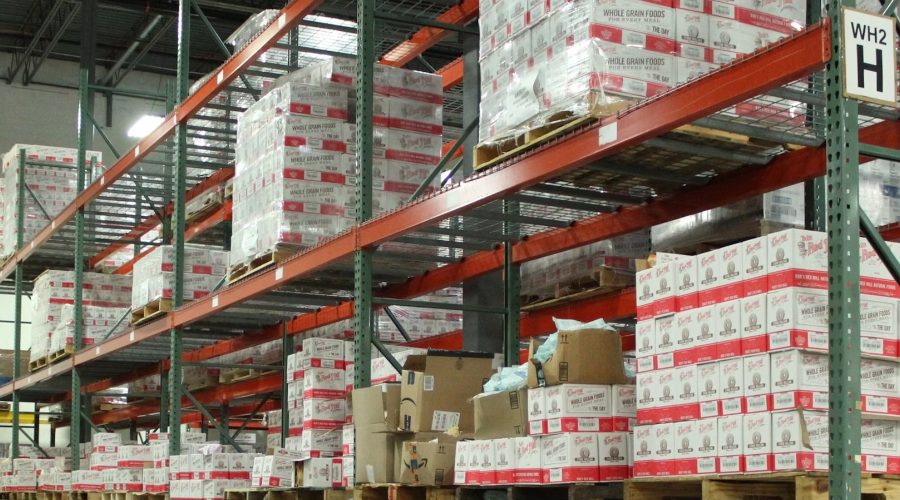Table of Contents
Get Custom eCommerce Fulfillment Service
Book a Meeting
Stock Keeping Unit (SKU): What Is SKU and Why It Matters
Time: Dec 04,2024 Author: SFC Source: www.sendfromchina.com
When it comes to running a successful retail or e-commerce business, understanding the ins and outs of inventory management is crucial. One of the most effective tools for organizing and tracking products is the SKU (Stock Keeping Unit). But what does SKU mean, and why should it be a part of your daily business operations? If you’ve ever struggled with product organization, order fulfillment, or stock discrepancies, SKUs are the solution you need.Our article will explain the importance of SKUs in managing inventory, fulfilling customer orders, and optimizing your supply chain. We’ll cover everything from what SKUs are used for to the differences between SKUs and UPCs, and how you can create effective SKUs that enhance your operations. If you're looking for ways to improve inventory accuracy, reduce errors, and scale your business efficiently, understanding and implementing SKUs is the key.

1. What Does SKU Mean
Stock Keeping Unit (SKU) is a unique identifier used by businesses to manage and track products within their inventory system. It’s typically a string of alphanumeric characters that represent specific attributes of a product, such as its type, color, size, and brand. SKUs are unique to each item, allowing businesses to monitor product movement, sales performance, and stock levels with ease.In essence, an SKU acts as an internal reference code that enables quick identification and differentiation between products within an organization's system.
The Key Features of an SKU
1. Uniqueness: Each SKU represents a distinct product or variant. For instance, a red shirt in size M might have a different SKU from the same shirt in size L.2. Customizable: Unlike Universal Product Codes (UPCs), SKUs are created by businesses themselves and can be customized to fit their specific inventory needs.
3. Alphanumeric: SKUs are usually alphanumeric strings, which allows for a variety of combinations that can describe the product's features.
2. Why SKUs Matter for Retail, E-commerce, and Logistics Operations

Streamlined Inventory Management
With the help of SKUs, businesses can monitor inventory levels in real time, ensuring they are never overstocked or understocked. It is especially crucial for large retailers who sell a variety of products across different categories.Efficient Order Fulfillment
In e-commerce, efficient order fulfillment is critical. SKUs enable quick identification of products during the picking and packing process, reducing the chances of errors and delays. With a well-structured SKU system, businesses can process orders much faster and more accurately.Enhanced Data Analysis
SKUs allow businesses to collect valuable data on sales trends, product performance, and customer preferences. By analyzing SKU-based data, companies can make informed decisions about product pricing, promotions, and stock levels.Now that we understand the importance of SKUs, let’s examine how they specifically impact inventory management.
3. How SKUs Transform Inventory Management Practices

Real-Time Stock Tracking
One of the most significant benefits of using SKUs is real-time inventory tracking. With each product assigned a unique SKU, companies can easily monitor the stock of individual items across various locations. Whether in a warehouse or a retail store, this real-time visibility ensures accurate stock counts.Improved Stock Replenishment
By analyzing SKU data, businesses can identify when a particular product is running low and needs to be restocked. It reduces the likelihood of stockouts and missed sales, ultimately improving customer satisfaction.Reduced Human Error
Manual inventory management often leads to errors, such as incorrect stock counts or misplaced products. SKUs help reduce these mistakes by automating much of the inventory management process, ensuring a more accurate tracking system.Optimized Shelf Space and Storage
SKUs also assist in optimizing storage space, as they provide clear details about product dimensions, quantities, and locations. It ensures that products are stored efficiently and that employees can quickly locate items when needed.Next, let's explore how e-commerce businesses specifically utilize SKUs to streamline their operations.
4. What Are SKU Numbers Used for in Ecommerce

Product Categorization and Filtering
E-commerce websites often display thousands of products. SKUs allow businesses to categorize products into groups, such as size, color, type, or brand. The categorization makes it easier for customers to filter and find the products they need.Accurate Order Processing
When customers make purchases, SKUs are used to quickly identify the items they ordered. By linking SKUs to product details, such as descriptions and prices, e-commerce businesses can ensure that the correct products are shipped to customers.Managing Returns and Exchanges
Returns are a common challenge in e-commerce. SKUs help businesses manage returned products more efficiently by allowing them to track which items are being returned and ensure that the product is in sellable condition before restocking it.Let’s now take a moment to compare SKU and UPC codes, two common identifiers used in retail and logistics.
5. SKU vs UPC

Definition
- SKU: An SKU is a custom code created by individual businesses to identify and manage their products. It is often used for inventory management, pricing, and internal organization.- UPC: A UPC is a standardized barcode used globally. It is used primarily for point-of-sale (POS) transactions and is recognized by retailers worldwide.
Purpose
- SKU: SKUs are used for internal tracking and inventory management. They are unique to each retailer and can be customized.- UPC: UPCs are used for external purposes, like scanning at checkout counters. They are universal and ensure that the same product can be recognized anywhere.
Structure
- SKU: Typically alphanumeric and customizable based on the business’s inventory system.- UPC: A 12-digit numeric code that is globally recognized and assigned by a central authority.
6. Steps to Create Effective SKUs for Maximum Clarity

Step 1: Establish a Consistent Format
The first step is to decide on a format for your SKUs. A good SKU structure should be short, but descriptive enough to include key product details such as type, size, color, and brand. For example, a SKU like “T-XL-BLK” could represent a T-shirt, size XL, color black.Step 2: Make It Logical and Easy to Understand
An effective SKU should be logical and easy to interpret. Employees should be able to decode the SKU without confusion. Avoid using ambiguous or overly complicated characters.Step 3: Avoid Special Characters
Special characters (like commas, dashes, or spaces) can cause issues with database systems and inventory software. Stick to letters and numbers to ensure compatibility with various systems.Step 4: Test and Refine Your System
Once you’ve created your SKU system, it’s crucial to test it across your entire product line. Make sure it covers all the categories and products you sell. Over time, refine the system to account for new products or categories.7. Common Mistakes about SKU Numbers

Mistake 1: Using Non-Descriptive SKUs
One of the most frequent errors is creating SKUs that lack descriptive value. Generic SKUs like “12345” offer little information about the product and can lead to confusion.Mistake 2: Using Duplicates
Each SKU should be unique to avoid confusion in inventory management. Duplicating SKUs for different products can result in inventory discrepancies.Mistake 3: Ignoring Consistency
Inconsistent SKU formatting can create operational chaos. Stick to a uniform format and follow it strictly to maintain clarity.Mistake 4: Overcomplicating SKUs
While detail is important, overloading SKUs with excessive information can make them difficult to manage. Keep them simple and concise.8. Conclusion
In summary, SKUs are more than just product codes. They are a fundamental part of managing inventory, streamlining logistics, and enhancing the customer experience. By understanding the importance of SKUs and implementing a well-organized SKU system, businesses can improve operational efficiency, reduce errors, and make more data-driven decisions.9. FAQs
1. What is the difference between SKU and product code?
A SKU is a unique identifier used internally by businesses to track inventory, while a product code can be any identifier used to label a product. SKUs are often more specific and customized to the needs of the business.2. Do all businesses need SKUs?
Yes, almost all businesses that manage physical inventory can benefit from using SKUs. They help keep track of stock levels and improve order accuracy.3. Can SKUs be shared between different companies?
No, SKUs are unique to each company. However, they can share similarities if businesses sell similar products.4. Are SKUs the same as barcodes?
No, SKUs are alphanumeric codes used for internal tracking, whereas barcodes, like UPC codes, are used for external identification and are often scanned at the point of sale.5. How can I generate SKUs for my products?
You can generate SKUs manually by following a specific format based on product attributes (such as size, color, and category), or you can use inventory management software that automatically generates them. Post Views:2170
Post Views:2170
Copyright statement: The copyright of this article belongs to the original author. Please indicate the source for reprinting.
Previous Post
What Is Kickstarter Late Pledge? Definition and Benefits
Next Post
TAGS
Hot Research
Recent News
Get Custom eCommerce Fulfillment Service
Book a Meeting
Get a Custom China Fulfillment Solution with FREE Storage for 30 Days
 Want to know about our services, fees or receive a custom quote?
Want to know about our services, fees or receive a custom quote?
 Please fill out the form on the right and we will get back to you within a business day.
Please fill out the form on the right and we will get back to you within a business day.
 The more information you provide, the better our initial response
will be.
The more information you provide, the better our initial response
will be.





 TAGS:
TAGS: